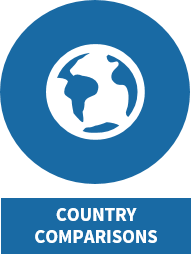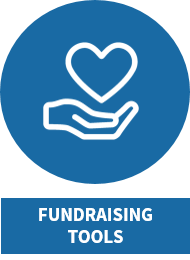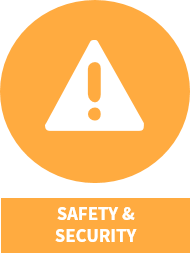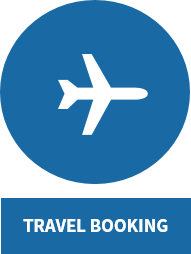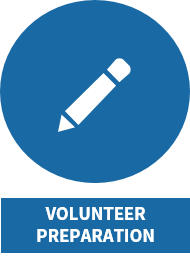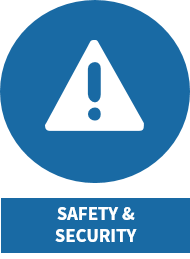Safety & Security
Safety & Security
Global Brigades understands that traveling to a new part of the world can be daunting not only for volunteers but also
friends and family that are supporting your brigade. Our number one priority is volunteer safety and we have created this
guideline and FAQ page to help address concerns you may have about the safety and security of our programs.
Responding to COVID-19
Please click the button below to read Global Brigades’ full response to Covid-19 and our plan for safely operating in-person programs.
General Safety & Security
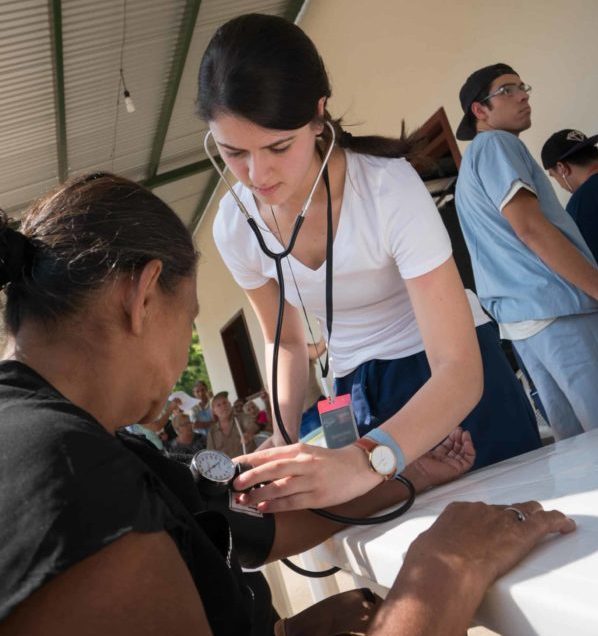
It is important to note some of the generalities of our safety and security standards:
- As an international entity, we are registered members of the OSAC. This allows global Brigades to constantly obtain updates about our programming countries directly from the US State Department.
- We adhere to the IVPA standards of international Volunteering
- Volunteers are enrolled on international travel insurance that covers hospitalization, evacuation, and a limited “tailgate” benefit.
The Global Brigades entities in our programming countries have the responsibility of administering regular risk assessments of the current political situation, the location of lodging facilities and communities, and transportation provided to volunteers.
It is important to keep in mind that the communities we work in are largely isolated and far away from major cities where crime is more prevalent. Global Brigades has built very strong relationships with the communities in which we work and is very aware of the safety and security environment of each community. We urge parents and volunteers to understand that crime committed in the major cities of the countries we work in does not mean that the entire country is unsafe. For example, if there was a riot in downtown Dallas, we would not assume that the entire state of Texas is unsafe and that the people in Houston are at risk. Please consider the nature of our work in isolated areas when reading any negative press about the danger of the countries that we are working in. Should you have any questions or concerns about Global Brigades’ safety please contact admin@globalbrigades.org.
Insurance Coverage During In-Person Brigades
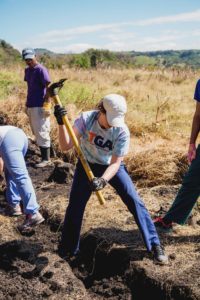
All volunteers registered to participate in a Global Brigades in-country program are automatically enrolled in the Core Travel Insurance policy (The Silver Plan), which provides volunteers with emergency medical coverage and other travel protection during their program dates. The travel insurance policy, which is underwritten by Axis Insurance, provides basic comprehensive travel coverage which includes, but is not limited to the following types of coverage:
- Emergency in-country medical expenses – $100,000.00
- Emergency Medical Evacuation – 100% of expenses covered
- Accidental Death and Dismemberment – $15,000.00
- Emergency Dental Care – $1,000.00 ($250.00 limit for alleviation of pain)
- Trip Cancellation – $1,000.00
- Emergency Reunion – $2,500.00
Specific details about the policy as well as answers to frequently asked questions can be found in the Core Travel Global Brigades FAQ document & Global Medical Brigades FAQ document. It is the responsibility of all volunteers to carefully review the information contained in the FAQ document and on this travel insurance page, in order to familiarize themselves with what is covered under the policy. For an additional cost, all volunteers also have the option of upgrading from The Silver Plan for additional coverage under “The Gold Plan” or “The Diamond Plan”, or by extending their coverage dates. If you wish to purchase an upgrade or extension through Core Travel, please log on to the Core Travel website using your name, date of birth, and program name (“Global Brigades”). By logging onto the website, you are also able to print out your individual insurance ID card. Any policy upgrades or extensions must be purchased before the program start date.
Please note that the Core Travel Policy only covers emergency medical treatment. If you choose to obtain non-emergency medical treatment during your program dates, beyond care which can be provided by our local staff physicians, you will be solely responsible for the associated costs.
Should you have any questions regarding the travel insurance policy or upgrade process, please contact Raul Casas at raulcasas@coretravelinsurance.com. If you have a specific question about an insurance claim or coverage upgrade, you may contact Core Travel directly at administrator@coretravelinsurance.com.
Vaccinations for In-Person Brigades
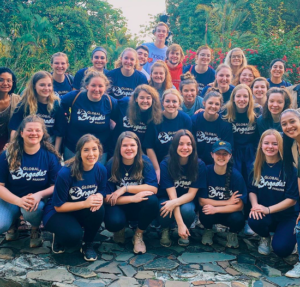
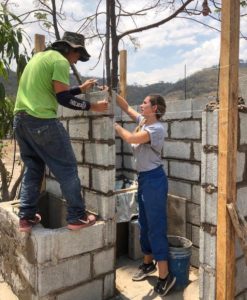
Global Brigades recommends for volunteers to visit the U.S. Center for Disease Control and Prevention (CDC) website for the most up-to-date information on vaccine recommendations for traveling to our partner program countries. Some vaccinations must be administered a few months or weeks before you travel. Vaccinations can usually be obtained at a health care provider or through a travel clinic. Always consult your physician for the best-recommended treatment options. Below is a list of CDC recommended vaccinations as well as required vaccinations per each country’s government. It is up to each volunteer to personally fulfill any vaccine requirements and ensure that all required paperwork is attained.
VACCINE RECOMMENDATIONS
- Routine vaccines
- Hepatitis A
- Hepatitis B (IOM highly recommends for Greece)
- Measles
- Rabies
- Polio booster (Ghana only)
- Malaria (all countries except Greece, recommended for all volunteers traveling to Ghana)
- Typhoid (all countries except Greece)
- COVID-19 vaccine and booster (highly recommended for all countries)
REQUIRED VACCINES
- Honduras: Yellow Fever
Due to changes in Honduran vaccination policies, any individual who is coming directly from a country in which yellow fever is present (i.e. Panama) must bring and present their Yellow Fever Vaccination Certificate to immigration when entering Honduras. Your vaccination certificate must show your vaccination took place 10 or more days before entering Honduras. If you do not have the yellow certificate card, you may not be granted access to the country. Some exceptions to this policy include:- Travelers that are on their way to Honduras and did a layover in a country in which yellow fever is present, regardless of their time in transit.
- Travelers who even though were present in a yellow fever country as of late, just before entering Honduras spent 6 or more days in a country where yellow fever is not present and are asymptomatic.
- Guatemala: Yellow Fever
You are required to present a Yellow fever card when entering Guatemala if you are coming directly from a country where yellow fever is considered an endemic disease (i.e. Panama), otherwise, you might not be allowed to board. If you are traveling to Guatemala directly from the US or a country where yellow fever is not present, there is no government requirement to have the yellow fever vaccine. - Panama: Yellow Fever
You are required to present the Yellow fever card if you are planning on traveling from Panama to a country that has yellow fever or requests yellow fever vaccines (i.e. Honduras), otherwise, you may not be allowed to board. If you are traveling to Panama directly from the US or a country where yellow fever is not present, there is no government requirement to have the yellow fever vaccine. - Ghana: Yellow Fever & Malaria
The Yellow Fever vaccination is REQUIRED to enter Ghana. If you do not bring proof of your Yellow Fever vaccination, you may not be allowed to board the plane to Ghana or you may be turned away at immigration. While Malaria prophylaxis is not required for Ghana, malaria is extremely prevalent throughout Ghana. Therefore, we also recommend all volunteers to take malaria prophylaxis. Discuss which prophylaxis is best for you and your trip with your physician well before your brigade.
Emergency Procedures
All volunteers are automatically enrolled in Global Brigades’ travel insurance policy, provided by Core Travel Insurance (www.coretravelinsurance.com).
Global Brigades Policy Number: GPT-0553718
Global Medical Brigades Policy Number: GPT-0553113
*If you have any questions about which policy number applies to your brigade, please contact your Program Associate.
Global Brigades has established emergency procedures around Core Travel’s insurance policy, underwritten by Axis Insurance Company. The insurance covers the volunteer for the treatment of medical or emergency needs for the duration of their Brigade in our programming countries.
For specific country procedures, please click on your country of preference.
Honduras
I. In an event of an emergency the on-site GB Coordinator, Paramedic and Program Associate are responsible for the following:
Coordinator:
- Organizes for the patient to be seen by the Doctor assign to the Brigade or Compound
- Removing other Volunteers from danger.
- Contacts (as appropriate): The Program Associate, any law enforcement officers and GBH office.
- During a medical emergency, GB Coordinator shall ensure that the volunteer is accompanied by at least one local staff member and one non-native staff member. If in a remote area without cellular access, the volunteer will be transported to the nearest clinic/hospital. Below is a list of local clinics/hospitals in the proximity of the brigade site and their contact info:
- Clínica Santa Rosa de Lima: +504-2754-6745
- Hospital y Clínicas Viera (Trauma Center of Choice): +504-2237-7136
- Honduras Medical Center (Hospitalization Center of Choice): +504-2236-7700 (Rina Gomez: +504-2280-1579)
- If there are not any medical facilities to transport the volunteers, the Coordinator will call a private emergency transportation company. Below is a list of the names and telephone numbers of possible emergency private transportation companies in Honduras:
-
- Red Cross: 195
- Emergency Services: 911
- Fire Department: 198
Doctor:
- Assess the initial situation and communicates with GBH On-Call Health Program Manager for treatment recommendations
- Coordinates transport to the nearest clinic if needed.
- The Paramedic creates an incident report of the situation for GBP to follow up on the case.
The Program Associate:
- If on-site, the Program Associate accompanies the volunteer to the clinic.
- The Program Associate so the local office can contact the volunteer’s international travel insurance provider (Axis Insurance Company) to coordinate Emergency Medical Transportation if needed. The PA will call Zurich Travel Assist at +1-800-263-0261 (in the USA) or +1-416-977-0277 (outside the USA) and provide:
- Volunteer’s name
- Volunteer’s policy identification number
- Coordinates of distress location
- A phone number in which they can be reached (Coordinator’s cellular phone)
II. Local GB headquarters in-country is responsible for:
-
- Contacting GB Executive Director of the country
- Transcribing a call log of all calls and activities pertaining to the incident
- Obtaining the following information from the on-site coordinator:
- Name of Brigade Coordinator, and volunteer at risk
- Identity of any other individual(s) involved, if applicable
- Brief description of accident, illness or emergency
- Location of the incident – address, city, country
- Assisting to determine proximity to nearest hospital/clinic
- 2 cell phone numbers where the at-risk volunteer can be reached
- Verify calls have been placed or place calls on behalf of on-site coordinator to emergency response services and U.S. Embassy/Consulate if situation warrants
- If the emergency resulted from a natural disaster, an act of terrorism, or an act of war, GB headquarters staff should ask for detailed answers to all of the following (if applicable):
- What was the terrorist target of unrest, if event was political?
- What was the terrorist target of unrest, if event was political?
- What is the intensity of the emergency or political unrest?
- Is there military or emergency personnel already on-site?
- What is the advice of the nearest U.S. Embassy/Consulate?
- Is there availability of food, water, and medical supplies?
- How able are our volunteers and staff to travel?
- Is the continuation of the brigade feasible?
- Instruct Brigade Coordinator to call again after the emergency response team or law enforcement has arrived.
- In an event of an emergency other than illness or isolated accident that involves a US Citizen, call the U.S. Embassy to the American Citizens Services Offices +504 2238-5114 for suggestions or assistance. Continue coordination throughout emergency.
- Contact the CEO of GB USA, Shital Vora.
- Once important facts have been collected, GB USA in conjunction with the in-country entity will assemble a task force in order to:\
- Contact family members of the volunteers involved in the incident
- Address immediate actions necessary to maintain the security and health of volunteers and Global Brigade Staff.
- Identify appropriate steps to take abroad (addressing student reactions, creating a written action plan, sending family members to the program site, etc.)
- Implement the evacuation plan outlined below (if necessary)
- Prepare a list of persons to be alerted (parents/family)
- Assess the impact of the event once ended and document all actions taken in the written report
III. Evacuation Plan for all GB Staff and Volunteers
-
- If the disaster event occurs in the south, central or east region of the country, all GB staff and volunteers will rendezvous at the headquarters in Tegucigalpa at the following address:
-
- Global Brigades Honduras
Ofibodegas Paseo Alto, Boulevard Los Proceres, Local #2, Tegucigalpa, M.D.C. Phone: +504 2221-0139 or +504 2221-0560
- Global Brigades Honduras
- Any and all transportation and relocation costs related to the disaster will be covered by Global Brigades Honduras. In the event of disaster and emergencies, all GB staff will have their ID, proof of medical insurance, and contingency funds with them at all times to assist the volunteers.
Panama
I. In an event of an emergency the on-site GB Coordinator, Paramedic and Program Associate are responsible for the following:
Coordinator:
- Organizes for patient to be seen by the Paramedic
- Removing other Volunteers from Danger
- Contacts (as appropriate): The program associate, any law enforcement officers and GBP office
- During a medical emergency, GB Coordinator shall ensure that the volunteer is accompanied by at least one local staff member and one non-native staff member. If in a remote area without cellular access, the volunteer will be transported to the nearest clinic/hospital. Below is a list of local clinics/hospitals in the proximity of the brigade site and their contact info:
- Hospital Nacional (Panama City): +507-207-8110
- Hospital de Chepo (East Panama): +507-296-7211
- Centro de Salud de Metetí (Darien): +507-299-6182/299-6151
- Hospital Dr. Rafael Esteves (Cocle): +507-908-9200
- Hospital Chicho Fabregas (Veraguas): +507-958-2300
Paramedic:
- Assess the initial situation and communicates with GBP On-Call Doctor for treatment recommendations
- Coordinates transport to the nearest clinic if needed.
- The Paramedic creates an incident report of the situation for GBP to follow up on the case.
The Program Associate:
- If on-site, the Program Associate accompanies the volunteer to the clinic.
- The Program Associate so the local office can contact the volunteer’s international travel insurance provider (Axis Insurance Company) to coordinate Emergency Medical Transportation if needed. The PA will call Zurich Travel Assist at +1-800-263-0261 (in the USA) or +1-416-977-0277 (outside the USA) and provide:
- Volunteer’s name
- Volunteer’s policy identification number
- Coordinates of distress location
- A phone number in which they can be reached (Coordinator’s cellular phone)
II. Local GB headquarters in-country is responsible for:
- Contacting GB Executive Director of the country
- Transcribing a call log of all calls and activities pertaining to the incident
- Obtaining the following information from the on-site coordinator:
- Name of Brigade Coordinator, and volunteer at risk
- Identity of any other individual(s) involved, if applicable
- Brief description of accident, illness or emergency
- Location of the incident – address, city, country
- Assisting to determine proximity to nearest hospital/clinic
- 2 cell phone numbers where the at-risk volunteer can be reached
- Verify calls have been placed or place calls on behalf of on-site coordinator to emergency response services and U.S. Embassy/Consulate if situation warrants
- If the emergency resulted from a natural disaster, an act of terrorism, or an act of war, GB headquarters staff should ask for detailed answers to all of the following (if applicable):
- What was the terrorist target of unrest, if event was political?
- What was the terrorist target of unrest, if event was political?
- What is the intensity of the emergency or political unrest?
- Is there military or emergency personnel already on-site?
- What is the advice of the nearest U.S. Embassy/Consulate?
- Is there availability of food, water, and medical supplies?
- How able are our volunteers and staff to travel?
- Is the continuation of the brigade feasible?
- Instruct Brigade Coordinator to call again after the emergency response team or law enforcement has arrived.
- In an event of an emergency other than illness or isolated accident, call the U.S. Department of State Citizens’ Emergency Center at 202/647-5225 for suggestions or assistance. Continue coordination throughout emergency.
- Contact the CEO of GB USA, Shital Vora.
- Once important facts have been collected, GB USA in conjunction with the in-country entity will assemble a task force in order to:\
- Contact family members of the volunteers involved in the incident
- Address immediate actions necessary to maintain the security and health of volunteers and Global Brigade Staff.
- Identify appropriate steps to take abroad (addressing student reactions, creating a written action plan, sending family members to the program site, etc.)
- Implement the evacuation plan outlined below (if necessary)
- Prepare a list of persons to be alerted (parents/family)
- Assess the impact of the event once ended and document all actions taken in the written report
III. Evacuation Plan for all GB Staff and Volunteers
- If unrest occurs in parts of the country outside of Panama City, all GB staff and volunteers will rendezvous at the headquarters in Panama City at the following address:
- Global Brigades Panama
Edificio Golden Point Office 23-01
Tumba Muerto Via Ricardo J. Alfaro, Los Angeles de Betania
Panama, Panama
- Global Brigades Panama
- In case of unrest or disaster in Panamá City, all volunteers and guests will rendezvous in the city of Penonomé of Coclé Province at the following address:
- La Iguana Eco Resort
- Carretera Panamerica, Via Churuquita Grande, Cocle
- +507 6798-8650 or +507 6138-8074
- Any and all transportation and relocation costs related to the disaster will be covered by Global Brigades Panama. In the event of disaster and emergencies, all GB staff will have their ID, proof of medical insurance, and contingency funds with them at all times to assist the volunteers.
Ghana
In an event of an emergency, the on-site GB Coordinator is responsible for the following:
1. Attending to the immediate needs of the volunteers involved
2. Removing other volunteers from danger
3. Contacting (as appropriate) local medical emergency officials, law enforcement officers, the U.S. Embassy/ Consulate, and GB USA
4. Telephoning volunteer’s international travel insurance provider (Axis Insurance Company) to coordinate Emergency Medical Transportation if needed. The PA will call Zurich Travel Assist at +1-800-263-0261 (in the USA) or +1-416-977-0277 (outside the USA) and provide:
– Volunteer’s name
– Volunteer’s policy identification number
– Coordinates of distress location
– A phone number in which they can be reached (Coordinator’s cellular phone)
5. During a medical emergency, the GB Coordinator shall ensure that the volunteer is accompanied by at least one local staff member and one non-native staff member. If in a remote area without cellular access, the volunteer will be transported to the nearest clinic/hospital. Below is a list of local clinics/hospitals in the proximity of the brigade site and their contact info:
– Trauma and Specialist Hospital (Winneba), +233-20- 965-7173
– Korle Bu Teaching Hospital (Accra), 233-302- 665-401
6. If there are not any medical facilities to transport the volunteers, the Coordinator will call a private emergency transportation company. Below is a list of the names and telephone numbers of possible emergency private transportation companies in Ghana:
– National Ambulance Service: 033-232- 0111 or 024-326- 6365
– Trauma and Specialist Hospital’s Ambulance Service: 020-711- 8686
II. Local GB headquarters in-country is responsible for:
1. Contacting GB Executive Director of the country
2. Transcribing a call log of all calls and activities pertaining to the incident
3. Obtaining the following information from the on-site coordinator:
– Name of the brigade coordinator, and volunteer at risk
– Identity of any other individual(s) involved, if applicable
– Brief description of accident, illness or emergency
– Location of the incident – address, city, country
– Assisting to determine proximity to nearest hospital/clinic
– 2 cell phone numbers where the at risk volunteer can be reached
– Verify calls have been placed or place calls on behalf of on-site coordinator to emergency response services and U.S. Embassy/Consulate if situation warrants.
4. If the emergency resulted from a natural disaster, an act of terrorism, or an act of war, GBUSA staff should ask for detailed answers to all of the following (if applicable):
– What was the terrorist target of unrest, if event was political?
– What is the intensity of the emergency or political unrest
– Are there military or emergency personnel already on-site?
– What is the advice of the nearest U.S. Embassy/Consulate?
– Is there availability of food, water, and medical supplies?
– How able are our volunteers and staff to travel?
– Is continuation of the brigade feasible?
5. Instruct CSI Coordinator to call again after the emergency response team or law enforcement has arrived.
In an event of an emergency other than illness or isolated accident, call the U.S. Department of State
Citizens Emergency Center at 202/647-5225 for suggestions or assistance. Continue coordination throughout the emergency.
6. Contact the CEO of GB USA, Shital Vora.
7. Once important facts have been collected, GB USA in conjunction with the in-country entity, will assemble a task force in order to:
– Contact family members of the volunteers involved in the incident
– Address immediate actions necessary to maintain security and health of volunteers and Global Brigade staff
– Identify appropriate steps to take abroad (addressing student reactions, creating written action plan, sending family members to the program site, etc.)
– Implement an evacuation plan outlined below (if necessary)
– Prepare a list of persons to be alerted (parents/family)
– Assess the impact of the event once ended and document all actions taken in written report
Evacuation Plan for all CSI Staff and Volunteers:
If the disaster event occurs in the Central Region, all CSI staff and volunteers will rendezvous at the following address:
Windy Lodge Hotel
Adjacent to Ghana Police Command and Staff College, Winneba
Or
Windy Lodge Hotel
3 minutes drive from Winneba Junction to UEW North Campus.
If the disaster event continues, all volunteers will rendezvous at the US Embassy:
US Embassy
Ring Road East
P.O. Box 194
Accra, Ghana
Telephone: (233) 21-775- 348
After Hours Emergency: (233) 21-775- 297
Fax: (233) 21-776- 008
Any and all transportation and relocation costs related to the disaster will be covered by CSI. In the event of disaster and emergencies, all GB staff will have their ID, proof of medical insurance, and contingency funds with them at all times to assist the volunteers.
Greece
I. In an event of an emergency the on-site GB Coordinator, Paramedic and Program Associate are responsible for the following:
Coordinator:
- Organizes for the patient to be seen by a doctor on site (if available)
- Removing other Volunteers from danger.
- Contacts (as appropriate): The program associate, any law enforcement officers and GBG office.
- Call a recognized GBG Medical Doctor in case their presence is required at the clinic during hospitalization
- During a medical emergency, GB Coordinator shall ensure that the volunteer is accompanied by at least two staff members. No friends or other brigaders are allowed to accompany the injured volunteer to the hospital or clinic. Below is a list of local clinics/hospitals in the proximity of the brigade site and their contact info:
- Euroclinic (Athens) +30 210-64-16-6600
- Hygeia Hospital (Athens) +30-210686-7000
- Regional General Hospital Evangelismos (Athens) +30-210-720-1000
The Program Associate:
- If on-site, the Program Associate accompanies the volunteer to the clinic.
- The Program Associate so the local office can contact the volunteer’s international travel insurance provider (Axis Insurance Company) to coordinate Emergency Medical Transportation if needed. The PA will call Zurich Travel Assist at +1-800-263-0261 (in the USA) or +1-416-977-0277 (outside the USA) and provide:
- Volunteer’s name
- Volunteer’s policy identification number
- Coordinates of distress location
- A phone number in which they can be reached (Coordinator’s cellular phone)
Local GB headquarters in-country is responsible for:
- Contacting GB Executive Director of the country
- Transcribing a call log of all calls and activities pertaining to the incident
- Obtaining the following information from the on-site coordinator:
- Name of Brigade Coordinator, and volunteer at risk
- Identity of any other individual(s) involved, if applicable
- Brief description of accident, illness or emergency
- Location of the incident – address, city, country
- Assisting to determine proximity to nearest hospital/clinic
- 2 cell phone numbers where the at-risk volunteer can be reached
- Verify calls have been placed or place calls on behalf of on-site coordinator to emergency response services and U.S. Embassy in Greece if situation warrants
- If the emergency resulted from a natural disaster, an act of terrorism, or an act of war, GB headquarters staff should ask for detailed answers to all of the following (if applicable):
- What was the terrorist target of unrest, if the event was political?
- What is the intensity of the emergency or political unrest?
- Is there military or emergency personnel already on-site?
- What is the advice of the nearest U.S. Embassy in Greece?
- Is there availability of food, water, and medical supplies?
- How able are our volunteers and staff to travel?
- Is the continuation of the brigade feasible?
- Instruct Brigade Coordinator to call again after the emergency response team or law enforcement has arrived.
- In the event of an emergency other than illness or isolated accident, call the U.S. Embassy & Consulate in Athens for recommendations or assistance. Continue coordination throughout emergencies.
-
- 91 Vasilisis Sophias Ave
-
10160 Athens, Greece
Tel. 0030 210 721 2951
- Contact the CEO of GB USA, Shital Vora.
- Once important facts have been collected, GB USA in conjunction with the in-country entity will assemble a task force in order to:
- Contact family members of the volunteers involved in the incident
- Address immediate actions necessary to maintain the security and health of volunteers and Global Brigade Staff.
- Identify appropriate steps to take abroad (addressing student reactions, creating a written action plan, sending family members to the program site, etc.)
- Implement the evacuation plan outlined below (if necessary)
- Prepare a list of persons to be alerted (parents/family)
- Assess the impact of the event once ended and document all actions taken in the written report
III. Evacuation Plan for all GB Staff and Volunteers
- If a disaster event or political unrest occurs, all GB staff and volunteers will rendezvous at the lodging facility
- Any and all transportation and relocation costs related to the disaster will be covered by Global Brigades Greece. In the event of disaster and emergencies, all GB staff will have their ID, proof of medical insurance, and contingency funds with them at all times to assist the volunteers.
Guatemala
I. In an event of an emergency the on-site GB Coordinator, Paramedic, and Program Associate are responsible for the following:
Coordinator:
- Organizes for the patient to be seen by the Doctor assign to the Brigade or Compound
- Removing other Volunteers from danger.
- Contacts (as appropriate): The Program Associate, any law enforcement officers and the GBH office.
- During a medical emergency, GB Coordinator shall ensure that the volunteer is accompanied by at least one local staff member and one non-native staff member. If in a remote area without cellular access, the volunteer will be transported to the nearest clinic/hospital. Below is a list of local clinics/hospitals in the proximity of the brigade site and their contact info:
- Hospital Nacional de Tecpan: +502-4263-8423
- Sanatorio Bella Vista M53M+vp2, Chimaltenango: +502-7937-2785/5227-6281
- Hospital Nasir, Humanity First: +502-7867-0800
- Hospital Universitario Esperanza (Private Center at the Capitol): +502-2415-9000
- If there are not any medical facilities to transport the volunteers, the Coordinator will call a private emergency transportation company. Below is a list of the names and telephone numbers of possible emergency private transportation companies in Guatemala:
-
- Red Cross: Direct Line 125
- Emergency Services: 911
- Fire Department: +502-7840-3114, Tecpan
- Fire Department: +502-7839-1234, Chimaltenango
- Police Department: 110
Doctor:
- Assess the initial situation and communicates with GBG On-Call Health Program Manager for treatment recommendations
- Coordinates transport to the nearest clinic if needed.
- The doctor creates an incident report of the situation for GBG to follow up on the case.
The Program Associate:
- If on-site, the Program Associate accompanies the volunteer to the clinic.
- The Program Associate so the local office can contact the volunteer’s international travel insurance provider (Axis Insurance Company) to coordinate Emergency Medical Transportation if needed. The PA will call Zurich Travel Assist at +1-800-263-0261 (in the USA) or +1-416-977-0277 (outside the USA) and provide:
- Volunteer’s name
- Volunteer’s policy identification number
- Coordinates of distress location
- A phone number in which they can be reached (Coordinator’s cellular phone)
II. Local GB headquarters in-country is responsible for:
-
- Contacting GB Executive Director of the country
- Transcribing a call log of all calls and activities pertaining to the incident
- Obtaining the following information from the on-site coordinator:
- Name of Brigade Coordinator, and volunteer at risk
- Identity of any other individual(s) involved, if applicable
- Brief description of accident, illness or emergency
- Location of the incident – address, city, country
- Assisting to determine proximity to nearest hospital/clinic
- 2 cell phone numbers where the at-risk volunteer can be reached
- Verify calls have been placed or place calls on behalf of on-site coordinator to emergency response services and U.S. Embassy/Consulate if situation warrants
- If the emergency resulted from a natural disaster, an act of terrorism, or an act of war, GB headquarters staff should ask for detailed answers to all of the following (if applicable):
- What was the terrorist target of unrest, if event was political?
- What was the terrorist target of unrest, if event was political?
- What is the intensity of the emergency or political unrest?
- Is there military or emergency personnel already on-site?
- What is the advice of the nearest U.S. Embassy/Consulate?
- Is there availability of food, water, and medical supplies?
- How able are our volunteers and staff to travel?
- Is the continuation of the brigade feasible?
- Instruct Brigade Coordinator to call again after the emergency response team or law enforcement has arrived.
- In an event of an emergency other than illness or isolated accident that involves a US Citizen, call the U.S. Embassy to the American Citizens Services Offices +502 2326-4000 or After Hours +502-2331-2354 for suggestions or assistance. Continue coordination throughout emergency.
- Contact the CEO of GB USA, Shital Vora.
- Once important facts have been collected, GB USA in conjunction with the in-country entity will assemble a task force in order to:
- Contact family members of the volunteers involved in the incident
- Address immediate actions necessary to maintain the security and health of volunteers and Global Brigade Staff.
- Identify appropriate steps to take abroad (addressing student reactions, creating a written action plan, sending family members to the program site, etc.)
- Implement the evacuation plan outlined below (if necessary)
- Prepare a list of persons to be alerted (parents/family)
- Assess the impact of the event once ended and document all actions taken in the written report
III. Evacuation Plan for all GB Staff and Volunteers
-
- If the disaster event occurs in the country, all GB staff and volunteers will rendezvous at the headquarters in Chimaltenango at the following address:
-
- Global Brigades Guatemala
Fundacion ULEU, 3ra Calle 1-78 Zona 3 Chimaltenango, +502-7839-1860 / 7839-3141
- Global Brigades Guatemala
- Any and all transportation and relocation costs related to the disaster will be covered by Global Brigades Guatemala. In the event of disaster and emergencies, all GB staff will have their ID, proof of medical insurance, and contingency funds with them at all times to assist the volunteers.
Belize
I. In an event of an emergency the on-site GB Coordinator, Paramedic, and Program Associate are responsible for the following:
Coordinator:
- Organizes for the patient to be seen by the Doctor assigned to the Brigade or Compound
- Removing other Volunteers from danger.
- Contacts (as appropriate): The Program Associate, any law enforcement officers and GBB office.
- During a medical emergency, GB Coordinator shall ensure that the volunteer is accompanied by at least one local staff member and one non-native staff member. If in a remote area without cellular access, the volunteer will be transported to the nearest clinic/hospital. Below is a list of local clinics/hospitals in the proximity of the brigade site and their contact info:
- ST GABRIEL MEDICAL CENTER LDT, San Ignacio Cayo+501-824-25-66 stgabrielcenter@gmail.com
- If there are not any medical facilities to transport the volunteers, the Coordinator will call a private emergency transportation company. Below is a list of the names and telephone numbers of possible emergency private transportation companies in Belize:
-
- Red Cross: +(501)-227-3319, +(501)-227-3617, +(501)-223-4276
- Police Station: +(501) 804-4208 in San Ignacio
- Emergency Services: 911
- Fire Department: +(501) 804-4208 in San Ignacio
Doctor:
- Assess the initial situation and communicates with GBB On-Call Health Program Manager for treatment recommendations
- Coordinates transport to the nearest clinic if needed.
- The Paramedic creates an incident report of the situation for GBP to follow up on the case.
The Program Associate:
- If on-site, the Program Associate accompanies the volunteer to the clinic.
- The Program Associate so the local office can contact the volunteer’s international travel insurance provider (Axis Insurance Company) to coordinate Emergency Medical Transportation if needed. The PA will call Zurich Travel Assist at +1-800-263-0261 (in the USA) or +1-416-977-0277 (outside the USA) and provide:
- Volunteer’s name
- Volunteer’s policy identification number
- Coordinates of distress location
- A phone number in which they can be reached (Coordinator’s cellular phone)
II. Local GB headquarters in-country is responsible for:
-
- Contacting GB Executive Director of the country
- Transcribing a call log of all calls and activities pertaining to the incident
- Obtaining the following information from the on-site coordinator:
- Name of Brigade Coordinator, and volunteer at risk
- Identity of any other individual(s) involved, if applicable
- Brief description of accident, illness or emergency
- Location of the incident – address, city, country
- Assisting to determine proximity to nearest hospital/clinic
- 2 cell phone numbers where the at-risk volunteer can be reached
- Verify calls have been placed or place calls on behalf of on-site coordinator to emergency response services and U.S. Embassy/Consulate if situation warrants
- If the emergency resulted from a natural disaster, an act of terrorism, or an act of war, GB headquarters staff should ask for detailed answers to all of the following (if applicable):
- What was the terrorist target of unrest, if event was political?
- What was the terrorist target of unrest, if event was political?
- What is the intensity of the emergency or political unrest?
- Is there military or emergency personnel already on-site?
- What is the advice of the nearest U.S. Embassy/Consulate?
- Is there availability of food, water, and medical supplies?
- How able are our volunteers and staff to travel?
- Is the continuation of the brigade feasible?
- Instruct Brigade Coordinator to call again after the emergency response team or law enforcement has arrived.
- In an event of an emergency other than illness or isolated accident that involves a US Citizen, call the U.S. Embassy to the American Citizens Services Offices. During regular business hours, U.S. Citizens with emergencies may appear for assistance in person at the Embassy consular section or may call 822-4011. After normal business hours, please call 822-4260 for suggestions or assistance. Continue coordination throughout emergency.
- Contact the CEO of GB USA, Shital Vora.
- Once important facts have been collected, GB USA in conjunction with the in-country entity will assemble a task force in order to:
- Contact family members of the volunteers involved in the incident
- Address immediate actions necessary to maintain the security and health of volunteers and Global Brigade Staff.
- Identify appropriate steps to take abroad (addressing student reactions, creating a written action plan, sending family members to the program site, etc.)
- Implement the evacuation plan outlined below (if necessary)
- Prepare a list of persons to be alerted (parents/family)
- Assess the impact of the event once ended and document all actions taken in the written report
III. Evacuation Plan for all GB Staff and Volunteers
-
- If the disaster event occurs in the country, all GB staff and volunteers will rendezvous at the headquarters at the following address:
- Mile 68 Western Highway San Ignacio, Cayo Belize, Belize
- Any and all transportation and relocation costs related to the disaster will be covered by Global Brigades Belize. In the event of disaster and emergencies, all GB staff will have their ID, proof of medical insurance, and contingency funds with them at all times to assist the volunteers.
- If the disaster event occurs in the country, all GB staff and volunteers will rendezvous at the headquarters at the following address:
Frequently Asked Questions
Please browse through the Frequently Asked Questions. If you need more information please contact us at admin@globalbrigades.org
What kind of security and staff is provided?
Every group is accompanied by at least one trained Brigade Coordinator, a full logistics team, and trained drivers. While in the community, Brigade Coordinators are in charge of maintaining a professional and safe work environment for the volunteers and the community. All coordinators are trained to assist first aid emergencies at the locations. Special transportation is on-call 24/7 during the brigade in case of major emergencies or complete evacuation from the location.
We also have some great partnerships that add a layer to our security protocols:
Honduras
Through a partnership with the Honduran government’s Office of Attention to Foreign Volunteers (Oficina de Asistencia al Voluntario Extranjero) which provides support to international volunteers, all groups are also accompanied by a police officer, as a precautionary measure.
Panama
Through a partnership with the Panamanian Frontier Service – SENAFRONT, all groups in the Darien region are also accompanied by a police officer, as a precautionary measure.
Guatemala
In a partnership with the Guatemalan government which provides support to international volunteers through Instituto Guatemalteco de Turismo INGUAT.
What is the relationship between the local entity and police?
Global Brigade partners with government entities to sustainably run our programs. We have maintained very strong relationships with authorities in countries we work in. All authorities are aware and supportive of volunteer activities and have worked together since the beginning of our operations to support the volunteers.
Honduras:
Global Brigades Honduras has maintained strong relationships with local security actors in the country, including the national police and army. All Global Brigades’ volunteers receive in-country support from the government’s Office of Attention to Foreign Volunteers (Oficina de Asistencia al Voluntario Extranjero) in the form of expedited customs processing and security support from the national police for the duration of all brigades. The Honduran government, as well as the U.S. Embassy in Tegucigalpa, is aware of Global Brigades’ programs in the country, and the presence of international volunteers in Honduras, and provides support as needed in the event of any emergency.
Panama:
GB Panama has maintained very strong relationships with the local Panamanian police authorities in the regions of the country we work in. These authorities, as well as the Panamanian government are aware and supportive of volunteer activities and have worked together successfully for years to support the volunteers. Furthermore, GB’s community projects are only done in rural areas where crime is low (if barely existent) and where relationships have been long established.
Greece:
GB Greece has built and maintained very strong relationships with the Greek Government, the Municipality of Athens, the American Embassy in Greece and other NGOs working in the refugee context, including the Red Cross and IOM (International Organization for Migration). These authorities are aware and supportive of the GBG volunteer activities and collaborate on how we can strengthen programs through regular NGO working group meetings
What is the involvement of the U.S Embassy and Department of State?
Prior to each brigade, all US volunteers are registered in the U.S. Department of State’s Smart Traveler Enrollment Program (STEP). Additionally, Global Brigades in-country entities are in close contact with the Embassy and are notified of any safety advisories.
Global Brigades is also a member of the OSAC (Overseas Security Advisory Council), from whom we receive the latest travel safety and security updates. These updates help us make key decisions towards our brigade operations in-country.
What criteria does Global Brigades use when selecting transportation vendors?
All vendors must be in full compliance with all local laws and regulations required by the government in order to transport passengers. All vehicles being provided must be recent models and in excellent working condition. Lastly, Global Brigades only works with established vendors in the transportation field who have extensive experience in the business of transporting passengers.
Honduras: All drivers must possess the appropriate special driver’s license that is required by the Honduran government, qualifying them to drive the types of buses that are being provided. In order to obtain this license, drivers have to pass a special driving test administered by the government.
Greece: Due to the high standards of the European Union and the high intensity of competition in the tourism industry, most Greek transportation companies are already at a level of excellence. Our transportation continues to receive the highest marks of approval from volunteers.
Guatemala: All drivers must possess the appropriate special driver’s license that is required by the Honduran government, qualifying them to drive the types of buses that are being provided. In order to obtain this license, drivers have to pass a special driving test administered by the government.
Are the communities safe?
Before entering a community, the GB Research and Evaluation (R&E) team collects baseline data, assesses community needs and secures buy-in from the local leadership. Each community is visited by the operations team of the local Global Brigades office to ensure that it is secure and safe for transporting the volunteers to and from the community. If the in-country leadership team ever feels that the safety of volunteers is compromised in any way, volunteers would be immediately withdrawn from the community.
How accessible are the communities?
All communities must be accessible through paved roads or well-maintained dirt roads (used mostly during summer) by normal vehicles or four-wheel drive. The driving time to the location varies between approximately 30 minutes to 2 hours from where the volunteers are staying.
Greece:
The GB clinic is located in the center of Athens, Greece’s capital. It is accessible by a 10 minutes walk from the lodging facility. The clinic is accessible by public transport (bus, metro) from various points in the city. Many of the NGO actors which operate in the camp drive from Athens every day and are able to access camp with their standard vehicles.
Have there ever been any incidents related to criminal activity?
Global Brigades has an exceptional track record for brigade security because of the involvement of local law enforcement, hired security, and strong relationships with local community leaders. Groups have only experienced incidents typical of any international travel, such as petty theft. Global Brigades has not experienced any incidents related to criminal activity in any of our programming countries (Panama, Honduras, Greece, Guatemala or Ghana)
Are volunteers ever alone?
Volunteers are never alone; Global Brigades staff remain with all groups for the entire duration of their brigade. All volunteers are given explicit directives to remain with their group at all times during the program.
What if the group has to be evacuated?
All program countries have detailed evacuation plans in place in the event volunteers need to be removed from the program site or country due to an emergency. All volunteers are covered by the Global Brigades Travel Insurance Policy. The in-country Program Associates will work with the Brigade Coordinators, local embassy, and airlines to ensure that the group departs immediately and safely.
Who do I contact in case of an emergency?
If there is an emergency situation where the family needs to get a hold of the volunteer immediately, please contact the appropriate team members listed below:
Emergency Travel Contact:
• GB International Office, +1-206-489-4798, or email admin@globalbrigades.org
Honduran and Guatemala Contacts:
• Luis Torres – Executive Director of Global Brigades Honduras, +504-9488-7997 (Honduran Mobile, Accessible via Whatsapp)
Panama Contacts
Pablo Garron – Executive Director: +507-6151-6288 (Panamanian Mobile, accessible via Whatsapp)
Ghana Contacts
Shafiu Shaibu – Operations Director: +233 20 032 3146 (Ghanaian Mobile, accessible via Whatsapp)
Greece Contact:
Tina Voulgari – Executive Director: +30 693-698-0665 (Greece Mobile Number, accessible via Whatsapp)
What if a volunteer gets ill during a brigade?
With common, non-urgent illnesses, volunteers can be seen by a staff paramedic or physician. In severe cases, or by request of the volunteer, Global Brigades can arrange communication with family members or transportation back to the volunteer’s home country. Depending on the severity or nature of the illness, transportation home may be partially or fully covered by Global Brigades’ travel insurance.



